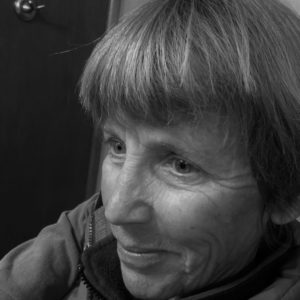 This is the story of a deer, a man, a woman, a tree and two funerals. It takes place in Georgia, down near the Florida line, on a hunting plantation that belongs to my father’s brother. It’s no Tara and the house on the land is no Twelve Oaks. It’s a modern house, simple and practical and beautiful in its practicality. It sits on a rise with a view of longleaf pine forest. Below are the kennels, the barns and the plantation manager’s house made of white brick.
This is the story of a deer, a man, a woman, a tree and two funerals. It takes place in Georgia, down near the Florida line, on a hunting plantation that belongs to my father’s brother. It’s no Tara and the house on the land is no Twelve Oaks. It’s a modern house, simple and practical and beautiful in its practicality. It sits on a rise with a view of longleaf pine forest. Below are the kennels, the barns and the plantation manager’s house made of white brick.
At the time of this story Bull was the manager. His given name was something else but everyone knew him as Bull. He was sturdy, strong, about 5’9” or 10”. His kids were grown and his wife worked in town. His neighbors were James and Annie Kate Hill, and they worked at the house. That’s information for later in the story.
Bull handled the dogs, which meant he trained them to be good hunting dogs. He made sure the mules were shoed and the horses were taken care of and the people were happy. If a horse turned up lame the vet came out, otherwise it was the blacksmith. A plantation, if you moved it off to the west a bit, would be called a ranch. Everything that happens on a ranch happens on a plantation, but a plantation has a history of slavery attached to it and that’s turned it into an uncomfortable word for a lot of people. I call this sweep of land a plantation because it’s in Georgia, not Arizona, and if you take the regionality out of a word you end up with a bland and confusing language.
Bull, by the way, was Black. Very few managers were Black at the time, but Bull was. He was also a dog handler before any other Black man was a dog handler. Back then, hunting plantations had their own system of segregation. If you were Black you could feed the dogs but don’t even think about training them. These were pointer dogs with names like Mike and Man and Sadie and Sal and they were trained to find quail. Finding quail is at the heart of the business of a hunting plantation. Without quail to shoot there are no paying guests, and without that revenue the business goes bust.
It’s important to remember the entire operation is built around killing. To eat the quail and dove and duck you shoot is part of the order of things. That’s what shows up for dinner. Shooting is a sport. It tends to refer to birds, and hunting to mammals. Bull himself was a hunter, not a shooter, and the day of James and Annie Kate’s double funeral, after watching people faint to the floor of the church with the shock and the heat, and watching the ladies in white, the ones called the White Angels, lifting one citizen after another and placing them in a pew with their feet raised on a stack of hymnals; after the closed coffins, the two coffins head to foot and knowing why they were both there and not just one of them, and believing that James’ diabetes medicine was to blame because James was the gentlest soul on earth until he turned the gun on his wife and then himself; after enough of this it was time to climb in the truck and leave the church and all the tragedy of the day behind. That’s what Bull was doing when I caught up to him and told him I was done, could he give me a lift?
The part of the story I don’t remember is the part after that. We must have made a plan. I was out of my good church clothes and into the darkest things I could find to throw on. Bull was in camo. We were up in a deer stand, up in the branches of a longleaf pine, sitting on a platform Bull tacked together years before. This is right, he kept saying, and asking me if I was okay with this, and I kept nodding and saying yep, it was right and I was okay. He told me ahead of time he’d only get one shot so it would happen quick, but when the deer appeared below us he waited. He waited for his one shot. It’s not a quick business until the right moment comes, and then it’s quick. That’s what he meant. It came, and the deer dropped straight down heavily so I knew it was an instant kill. She was small, but not too small. At first he didn’t want me to help get her to the truck but I said I’ve had enough of being a watcher today, I’d appreciate going to work.
Why do I tell you this story? I tell you this story because all kinds of change is coming and each episode of change has within it a right moment, the right time to say or do or keep quiet. And everything we say or do has the possibility of helping or doing harm. You’ll notice this story has a few guns in it. One of them put two people in their coffins, one of them fed a couple of families. Words are guns. Actions and thoughts are too. That’s what I mean.
And why I’ve told you this story is because I like to remember it. Bull is gone. He had a series of strokes and lived a few years in a wheelchair before he died. I didn’t see him at all during that time. But that day, the day of the funerals, when he set out to do something meaningful, something that would move the double funerals out of his head; that day when he understood it wasn’t just him in that state of mind but me too, and he kept asking if I was okay with what he was about to do, to take a life; well, that was a human experience between two humans and an animal and a tree, and telling the story keeps everything in the story alive, as it was that day, and adds meaning to things outside the story. It’s the story’s own right moment for the telling.

